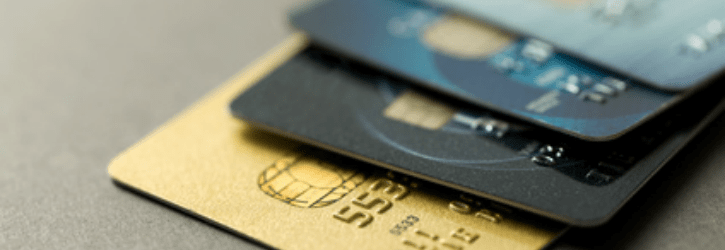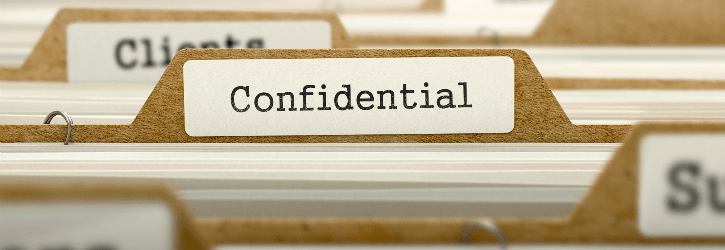Welcome To The Data Leak Lawyers Blog
We focus on the latest news surrounding data breaches, leaks and hacks plus daily internet security articles.
We focus on the latest news surrounding data breaches, leaks and hacks plus daily internet security articles.

You can be entitled to make a claim for compensation as a victim of a council data leak, and we can represent you on a No Win, No Fee basis for a case.
Council data protection compensation cases are one of the more common types of individual cases that we take forward. They can cover a range of local authority departments, and this can include schools and social services.
The impact of a council data incident can be substantial given the nature of the information they hold. In fact, data breach compensation amounts in these kinds of cases can be high when we see particularly personal and sensitive data misused or exposed. It’s important for victims to know their rights!

The issue of London council data breaches has hit the media in light of damning statistics about the volumes of data that has reportedly been lost or stolen that involves these authorities.
Council data breach compensation claims are one of the most common types of cases that we take forward. The reasons are likely down to the sheer wealth of data that authorities and their outsourced partners hold, and the fact that it can be very personal and sensitive. What also doesn’t help is the fact that there are funding issues which can mean some councils aren’t able to commit enough resources for data protection either.
As a leading, specialist data breach law firm, the statistics do not come as a surprise to us; despite how worrying they are.

Victims of a school cybersecurity breach can be entitled to make a claim for compensation on a No Win, No Fee basis with the help of our expert team.
Any misuse, exposure or loss of information that stems from a school data breach can lead to significant distress for the victims, and it’s important that they’re entitled to justice for what has happened. Whether it’s a breach, hack, leak, or someone misusing information they have access to, or in any other circumstances, a claim could be made.
For several years, we have been at the forefront of data breach compensation claiming as a leading law firm that specialises in this niche area of law. Our advice is available for you on a free and no-obligation basis, and we’ll do all we can to fight for the rights of victims who instruct us for a legal case.

If your debit or credit card is hacked, you could be entitled to make a claim for data breach compensation, even if no money was stolen or if you’ve been refunded.
If you have lost money, we can include this as part of a legal case as well. However, you don’t have to have suffered an actual financial loss to be able to make a No Win, No Fee claim with us.
The distress that victims can suffer when this kind of personal and sensitive information is exposed can be substantial. Data breach compensation pay-outs can reflect the distress that people suffer from by the loss of control of their personal information. In this area of law, we are experts with a proven track record of settling damages claims over several years.

In some cases, those small and simple data breaches can actually be the worst; especially when the context of the incident is considered.
It can only take one employee of an organisation failing to understand the rules that can lead to a substantial breach. It can only take just one piece of leaked information to cause significant to distress for the victim as breaches can be very subjective.
Take it from a leading law firm with a proven track record of succeeding with data breach cases that sample leaks, breaches and hacks can cause devastation. Our role is to make sure that anyone – no matter who they are and what the breach is – can access the justice they may be entitled to.

We represent victims for police breach data protection breach compensation claims, and we can offer No Win, No Fee arrangements for cases that we can take forward.
Although we can be thankful for the hard work and bravery of many officers of the law, it’s important to remember that the police are not above the law. This includes officers, senior staff, and administration and support employees. Anyone employed within the police service is subject to the same rules as everyone else, and the Data Protection Act and the GDPR apply.
If you have been affected by a leak, breach or hack involving the police, you should speak to our team for free, no-obligation advice. We’re data compensation experts with a proven track record of settling claims, with thousands of people having come to us for our specialist advice and legal representation.

Issues relating to inappropriate access to medical records is something we have talked about before. It’s completely wrong and can have a huge impact for the victims.
In some cases – and this is what we will look at here – unauthorised access to medical data can be a great deal more sinister than staff being curious about people they’re acquainted with. In some cases, employees have accessed information for more sinister means, where they have targeted specific individuals to pursue them for relations.
We have represented people who have been unscrupulously contacted by employees who have accessed their contact data through their employment to then engage them for relations. In these kinds of scenarios, the impact for the victim can be substantial, so it’s important to know your rights.

We offer professional, confidential and no-obligation advice and representation for an HIV status data leak as an area of law that we have particular expertise in.
One of the first data actions that we took forward was for victims of the infamous 56 Dean Street Clinic leak. This 2015 leak resulted in the HIV status for almost 800 patients being exposed, and the impact for the victims has been substantial. Having built legal cases for the many who placed their legal cases with us, we understand just how bad this kind of data exposure can be.
It’s important to know our background in these kinds of claims, given how serious a matter like this is. A lot of law firms have started offering services for data cases, and we’ve seen some remarkable and unsubstantiated claims being made by some firms when it comes to their role in the sector. People need to take care.

The Dixons Carphone data breach fine has been formally issued by the Information Commissioner’s Office (ICO) for the maximum amount possible under the previous rules.
The cyberattack took place between July 2017 and April 2018, meaning the Data Protection Act 1998 applies as opposed to the GDPR that came into force just a month later. As such, the maximum fine that the retailer could face was £500,000.00, which is what the ICO has issued. Had the attack have continued into the GDPR era, they could have faced fines in the hundreds of millions of pounds mark.
We’ve been representing victims of this data breach for some time now as expert data protection compensation lawyers with a wealth of experience in large consumer actions. As we know a great deal about this breach as it’s one of our live actions, we’re not surprised by the findings and the maximum fine being issued.

It’s official: the first GDPR fine in the UK has been issued to Doorstep Dispensaree for data protection breaches that spanned across a two-year period.
This one involves medical data, which is some of the most personal and sensitive forms of data that there is. Medical data breach compensation claims account for a large proportion of the legal cases that we take forward because of how common they can be, and because of the impact on victims. The impact is often severe because this is the kind of information that we do not want to be misused or exposed.
The breach period, in this case, is between June 2016 and June 2018, which means that it just falls within the GDPR start period from May 2018. The Information Commissioner’s Office (ICO) was reportedly alerted to the breach by the Medicines and Healthcare Products Regulatory Agency (MHRA) who were conducting unrelated enquiries.
Fill out our quick call back form below and we'll contact you when you're ready to talk to us.